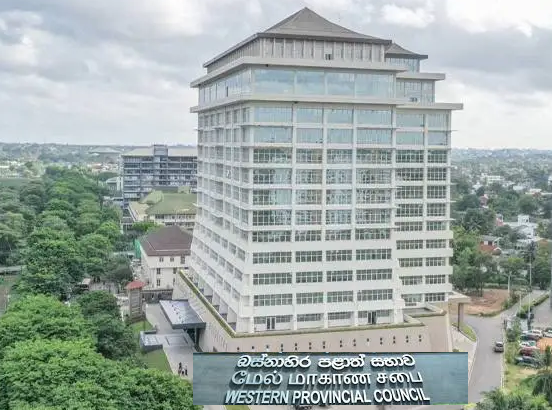The Indo-Lanka Accord, signed by President J. R. Jayewardene and Indian Prime Minister Rajiv Gandhi on 29 July 1987, aimed to end the armed struggle by Tamil rebels in the North and East seeking a separate state. This agreement paved the way for the Provincial Council system. Consequently, the 13th Amendment to the Second Republican Constitution of 1978 was introduced in Parliament, establishing Provincial Councils as part of a decentralisation of power.
The Provincial Council Act No. 42 of 1987 was passed with the support of 138 MPs, despite widespread protests against the Indo-Lanka Accord. The opposition Sri Lanka Freedom Party (SLFP) and the Janatha Vimukthi Peramuna (JVP) spearheaded these protests, strongly opposing both the Accord and the Provincial Council system. Even some members and ministers of the ruling party expressed dissent. Thus, Provincial Councils were established in 1988 amid a politically hostile environment.
The First Provincial Council Elections
The first elections were held on 28 April 1988 for the North Western, North Central, Sabaragamuwa, and Uva provinces. Due to the tense national situation, elections for the Western, Central, and Southern provinces followed in June, while the North-Eastern Provincial Council election took place in November. The SLFP boycotted these polls, and the JVP urged the public to do the same. Despite this, the United National Party (UNP) secured victory in the first Provincial Council elections, held under extremely volatile conditions.
The United Socialist Front, formed by left-wing parties supporting Provincial Councils as a solution to the ethnic conflict, also contested. Tragically, many left-wing politicians and activists were killed by armed groups who were against the PC system during this period.
Current Status: A System in Limbo
No Provincial Council elections have been held since 2014. Today, Provincial Councils function without elected representatives, operating under Governors appointed by the central government. While ministries and offices continue under the Governor’s authority, there is no mechanism for addressing public grievances effectively. This vacuum has led to rising irregularities and corruption at the provincial level, as citizens lack representatives to escalate complaints. Development proposals for Provincial Council funds have also stalled.
The dysfunction of Provincial Councils has drawn attention both locally and internationally. The issue was raised at the recent session of the UN Human Rights Council, where Sri Lanka’s Foreign Minister stated that elections would be held next year—either under the existing system or a proposed new system. With a two-thirds majority in Parliament, the government can either expedite the delimitation process for a mixed system or revert to the old system through parliamentary approval.
Key Opinions from Recent Colombo Conference
M.P., Attorney at Law, Dayasiri Jayasekara:
“People in villages now want Provincial Councils more than we do. But bureaucracy blocks progress. Less than 10% of funds allocated for the Northwestern Provincial Council in 2025 have been spent. Governors—often retired judges—lack public engagement. Without elected members, Provincial Councils have become white elephants.”
Mohamed Manas, Executive Director – CAFFE:
“There is hardly any demand for immediate elections. The term of all Provincial Councils expired during the Yahapalana government (2015–2019). The opposition must clarify its stance.”
Manjula Gajanayake, Executive Director, Institute for Democratic Reforms:
“Delimitation is being used to delay elections. The simplest solution is to hold elections under the old system. It’s practical and avoids unnecessary complications.”
Harendra Banagala, Legal Advisor, CAFFE:
“Abolishing Provincial Councils would create chaos. Nearly one million civil servants work under Provincial Councils. Merging them into the central system would overwhelm the government and destabilise administration.”
Does Sri Lanka Still Need Provincial Councils?
The Provincial Council system was introduced under Indian influence to resolve the ethnic conflict. While decentralisation suits large countries like India, its relevance for a small nation like Sri Lanka has long been debated—especially given the high cost of maintaining nine Provincial Councils. With the war over, political parties are questioning whether the system should continue or be replaced. The JVP, historically opposed to Provincial Councils and now in power, leads this debate.
Nevertheless, the government insists that Provincial Council elections will be held next year.
©SLB
(Translated from Sinhala Article )
